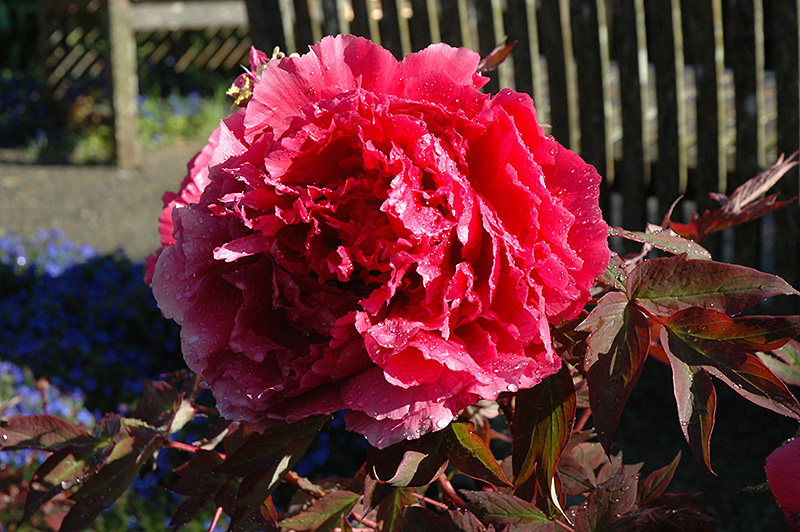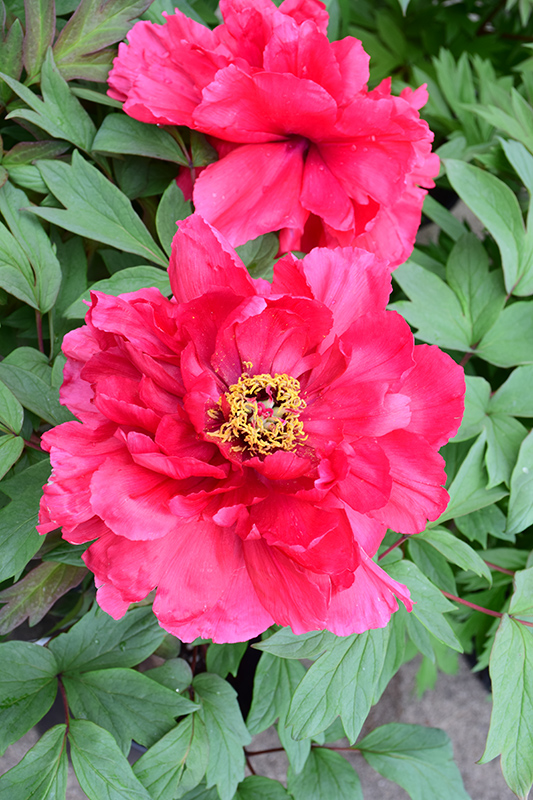Height: 5 feet
Spread: 3 feet
Sunlight:
![]()
![]()
Hardiness Zone: 3
Description:
Semi-double dark-red flowers with bright yellow stamens; tree peony is different from a garden peony, it is preferable to leave the woody stems in spring and only cut back after flowering
Ornamental Features
Hoki Tree Peony features bold semi-double red flowers with yellow centers at the ends of the branches in late spring. The flowers are excellent for cutting. It has green deciduous foliage which emerges burgundy in spring. The narrow compound leaves do not develop any appreciable fall colour.
Landscape Attributes
Hoki Tree Peony is a multi-stemmed deciduous shrub with an upright spreading habit of growth. Its relatively fine texture sets it apart from other landscape plants with less refined foliage.
This is a relatively low maintenance shrub, and should only be pruned after flowering to avoid removing any of the current season's flowers. It is a good choice for attracting bees and butterflies to your yard, but is not particularly attractive to deer who tend to leave it alone in favor of tastier treats. Gardeners should be aware of the following characteristic(s) that may warrant special consideration;
- Disease
Hoki Tree Peony is recommended for the following landscape applications;
- Accent
- Mass Planting
- Hedges/Screening
- General Garden Use
Planting & Growing
Hoki Tree Peony will grow to be about 4 feet tall at maturity, with a spread of 3 feet. It has a low canopy. It grows at a slow rate, and under ideal conditions can be expected to live for approximately 20 years.
This shrub does best in full sun to partial shade. It does best in average to evenly moist conditions, but will not tolerate standing water. It is not particular as to soil pH, but grows best in rich soils. It is somewhat tolerant of urban pollution. This is a selected variety of a species not originally from North America. It can be propagated by division; however, as a cultivated variety, be aware that it may be subject to certain restrictions or prohibitions on propagation.


